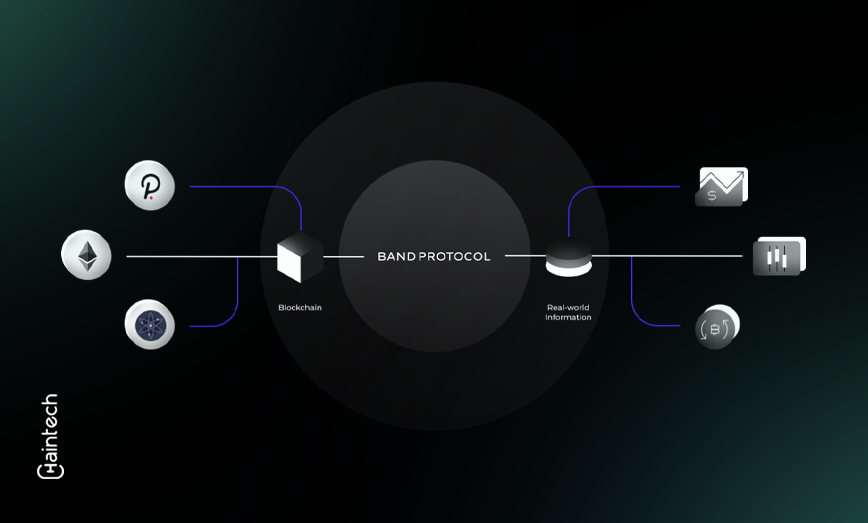From Paper to Digital: How Blockchain Adoption is Reshaping the Indian Government

The digitization of government processes has been steadily transforming governance in India. The integration of blockchain technology has emerged as a powerful tool to further revolutionize the Indian government. With its potential to ensure transparency, security, and decentralization, blockchain is reshaping various sectors and paving the way for a more efficient and accountable government.
Understanding Blockchain Technology
Blockchain, at its core, is a decentralized, immutable, and transparent ledger. It operates on the principle of distributed consensus, where every participant in the network maintains a copy of the ledger, making it virtually impossible to tamper with the recorded data. This technology ensures trust and eliminates the dependence on intermediaries, safeguarding the integrity of transactions and enabling secure data sharing.
Blockchain Adoption in India’s Government Systems
India’s government has recognized the immense potential of blockchain and has already taken notable strides in its adoption. Several use cases have emerged across various sectors, leading to transformative outcomes. One such example is the implementation of blockchain technology in land records, simplifying the property registration process and eliminating fraudulent practices.
However, while the benefits are undeniable, challenges remain. The implementation of blockchain in government systems requires careful consideration of technical complexities, regulatory frameworks, and stakeholder participation. Overcoming these hurdles is crucial to fully harness the potential of this technology.
Streamlining Identity Management through Blockchain
Blockchain has the ability to revolutionize identity management within the Indian government. By leveraging blockchain for citizen identification records, the government can ensure secure and tamper-proof identities. This would enhance transparency in electoral systems, reducing the chances of fraudulent practices and reinforcing trust in the democratic process.
Enhancing Transparency and Accountability in Public Finance
One of the most pressing challenges in governance is maintaining transparency and accountability in public finance. Blockchain technology can address this issue by enabling the tracking of government budget allocations. With a decentralized financial system, corruption can be mitigated, as every transaction is recorded transparently and can be traced back to its source.
Revolutionizing Land Records and Property Registration
Blockchain presents a transformative solution to the age-old problem of fraudulent land records and property registration. By implementing blockchain-powered land records, the Indian government can eliminate the possibility of tampering and manipulation. This would streamline the property registration process, ensuring quick and hassle-free transactions for citizens.
Improving Supply Chain Management for Essential Goods
Supply chain management is a critical aspect of governance, particularly when it comes to essential goods. Blockchain technology can ensure the traceability and authenticity of essential commodities, minimizing the chances of counterfeit products entering the market. Additionally, by eliminating middlemen and introducing decentralized systems, corruption in government procurement can be significantly reduced.
Safeguarding Intellectual Property Rights with Blockchain
The protection of intellectual property rights is crucial in fostering innovation and creativity. Blockchain can enhance the efficiency and transparency of intellectual property registration, ensuring secure and tamper-proof records. Strengthening the enforcement of copyright laws and patents becomes more feasible, empowering artists, inventors, and creators.
Combating Tax Evasion and Black Money
Tax evasion and the circulation of black money are major challenges in India’s governance. Blockchain technology can play a pivotal role in creating a tamper-proof tax filing system. By recording transactions transparently and with a high level of integrity, blockchain can significantly reduce tax evasion and minimize the circulation of black money.
Empowering Citizens through E-Governance
E-governance is essential for making government services accessible to citizens in a convenient and secure manner. With blockchain’s decentralized and secure nature, online government services can be enabled, ensuring data privacy and protection. Moreover, citizen participation can be enhanced, allowing individuals to actively engage in decision-making processes through transparent and auditable mechanisms.
Overcoming Challenges: Legal and Regulatory Frameworks
Implementing blockchain technology in the Indian government sector comes with legal implications and privacy concerns. It is vital to address these challenges meticulously to safeguard the rights and privacy of individuals. Developing comprehensive regulatory frameworks that promote innovation while protecting citizens’ interests is crucial for the successful implementation of blockchain technology.
Future Outlook: The Potential of Blockchain in Government
Looking ahead, the potential of blockchain technology in the Indian government is vast. As blockchain continues to evolve, new use cases and innovations are emerging. From streamlining administrative processes to facilitating secure and efficient data sharing, blockchain holds the promise of transforming governance. The future of a blockchain-powered governance system in India looks promising and full of unprecedented possibilities.
Parting Words
The integration of blockchain technology in India’s government sector has unleashed a wave of transformation. By ensuring transparency, security, and decentralization, blockchain is revolutionizing various areas, such as identity management, property registration, public finance, supply chain management, intellectual property rights, tax systems, and e-governance. As challenges are overcome and regulatory frameworks are established, blockchain has the potential to reshape the Indian government, empowering citizens and fostering a more efficient and accountable governing system.
FAQs (Frequently Asked Questions)
What is blockchain technology and how is it different from traditional databases?
Blockchain technology is a decentralized and transparent ledger that operates on the principles of distributed consensus, ensuring security and immutability. Unlike traditional databases, blockchain eliminates the need for intermediaries and offers a more tamper-proof and efficient system.
How does blockchain adoption in the government improve transparency and accountability?
By leveraging blockchain, the government can track and record transactions transparently, ensuring the integrity of data and enhancing transparency. This promotes accountability as every action can be audited and traced back to its source.
Can blockchain technology address the challenges of corruption and fraud in India’s governance?
Yes, blockchain has the potential to mitigate corruption and fraud by introducing decentralized systems that eliminate the need for intermediaries. Transactions recorded on the blockchain are tamper-proof and traceable, reducing the chances of corrupt practices.
What are the potential risks and challenges associated with implementing blockchain in the government sector?
The implementation of blockchain in the government sector requires addressing technical complexities, developing adequate regulatory frameworks, and ensuring stakeholder participation. Privacy concerns and legal implications also need to be carefully considered.
How can blockchain enhance citizen participation in decision-making processes?
Blockchain can enable secure and decentralized online government services, allowing citizens to actively engage in decision-making processes. With transparent and auditable mechanisms, blockchain empowers individuals to contribute and shape governance.
What is the role of regulatory frameworks in governing blockchain technology?
Regulatory frameworks play a crucial role in governing blockchain technology, ensuring the protection of individual rights, promoting innovation, and establishing standards for secure and accountable implementation.









